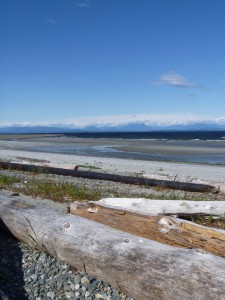
I’m planning a trip to Japan. I’m not sure when I’ll go, but it’s on my longish short list of destinations to visit. “You must go in spring,” a friend told me the other day. “It’s a perfect time.”
Perfection seems to be the theme of the week. Maybe it’s the way the stars are aligning, or maybe February calls on our inner perfectionist, or maybe it’s simply coincidence. Whatever the reason, people seem to be tossing the idea of perfection around like happy celebrants tossing confetti at a wedding.
It’s starting to annoy me. Not the celebratory confetti thing; that sounds like fun. Although, having just googled confetti and the environment, I should probably find another simile. Or is it a metaphor? . . .
Now back from five minutes of checking the difference between simile and metaphor and thinking maybe I should scrap this idea entirely lest I make a mistake and write an imperfect blog.
There it is, the whole perfection/imperfection thing cropping up again.
Full disclosure: I have been known to have (cough, cough) perfectionistic tendencies, especially in a few areas of my life (those who know me well can stop laughing now). It’s a tendency I’m trying hard to overcome. That’s why my house is currently a mess (at least, that’s my excuse).
I didn’t start the week thinking about perfection. First, there was that conversation with a friend about Japan and the perfect time to go. Then there was an interview and tour I did for a feature on a new home build. The home is stunning. It could – and probably someday will – grace the cover of Architectural Digest Magazine. The word perfect was bandied about a lot during my tour, including a few apologies for areas that ‘weren’t quite perfect yet.’ Finally, there was a walk with friends where I learned that Bruce Springsteen has hair plugs (I’m not sure how I survived this long without knowing that, but amazingly I did). That morphed into a conversation about his plastic surgery which led someone to comment that they’d much rather watch him perform with a full head of hair and no wrinkles. He would be perfect that way.
We were walking in the woods when I learned about Springsteen. It had rained heavily overnight; the trail was muddy and littered with leaves. The trees around us were bent and twisted. Moss and Old Man’s Beard dangled haphazardly from the occasional branch, waiting for wind or a forager to carry it away. Nothing about the view was perfect, yet it was perfect in its imperfection, as nature always is.
Our culture promotes the idea of perfection. We’re told everything can be improved: our bodies, homes, and relationships, to name only three. In the middle of writing this, I received an email from a local garden retailer extolling the virtues of the perfect patio plants now available to order. A few weeks ago, I learned that women in their thirties are getting Botox or ‘soft’ facelifts as a preventive measure to avoid ‘future imperfections.’
In Japan, they have something called wabi-sabi. An integral part of their culture, it’s the practice of celebrating and embracing imperfections. In fact, the Japanese have dedicated a 400-year-old art form – kintsugi – to putting broken pottery pieces back together with gold. Kintsugi is designed to highlight the ‘scars’ and to create something more unique, more beautiful and even more resilient in spite of its apparent inadequacy. Many of the antique bowls used in the Japanese tea ceremony have cracks, uneven glazes and imperfect shapes. And they are highly prized for their supposed deficiencies.
When I write novels, I’m always careful to develop characters with flaws. Most writers I know are careful to do that too. We recognize at a deep level that flawed characters are more believable, more relatable, and more likeable. Yet it can be a real challenge to accept and let our own imperfections show.
That, I decided, was the lesson of this week. In a culture that favours the flawless, the perfect, the hair plugs or preventative Botox injections, I need to honour the beauty of imperfection. I need to let the housework go for a little longer still. Let the dirt collect a bit more in the corners. And I also need to book that trip to Japan. Even if I can’t figure out the perfect time to go.

 The first crop of spring asparagus has arrived. Field asparagus, I mean. There’s such a thing as sea asparagus too, and that’ll show up at the market in June, right around my wedding anniversary. Sea asparagus is delicious. The tiny stalks are thinner than a straw and their taste is subtle but unique: a little ocean and a little lettuce. There’s nothing fishy about sea asparagus, nothing even remotely close in taste to its earth-grown cousin.
The first crop of spring asparagus has arrived. Field asparagus, I mean. There’s such a thing as sea asparagus too, and that’ll show up at the market in June, right around my wedding anniversary. Sea asparagus is delicious. The tiny stalks are thinner than a straw and their taste is subtle but unique: a little ocean and a little lettuce. There’s nothing fishy about sea asparagus, nothing even remotely close in taste to its earth-grown cousin. As I write this, a series of big storms is predicted for the Pacific Northwest and we’re scheduled to head off to the mainland to see family and friends. Normally we’d reschedule but there’s a high school reunion planned so we’re motivated to make the trek. Let’s hope the weather cooperates. If not, I’ll be staying home and reading by the fire. I have a few extra books on hand just in case. Here’s what I’m reading this month:
As I write this, a series of big storms is predicted for the Pacific Northwest and we’re scheduled to head off to the mainland to see family and friends. Normally we’d reschedule but there’s a high school reunion planned so we’re motivated to make the trek. Let’s hope the weather cooperates. If not, I’ll be staying home and reading by the fire. I have a few extra books on hand just in case. Here’s what I’m reading this month:



Comments